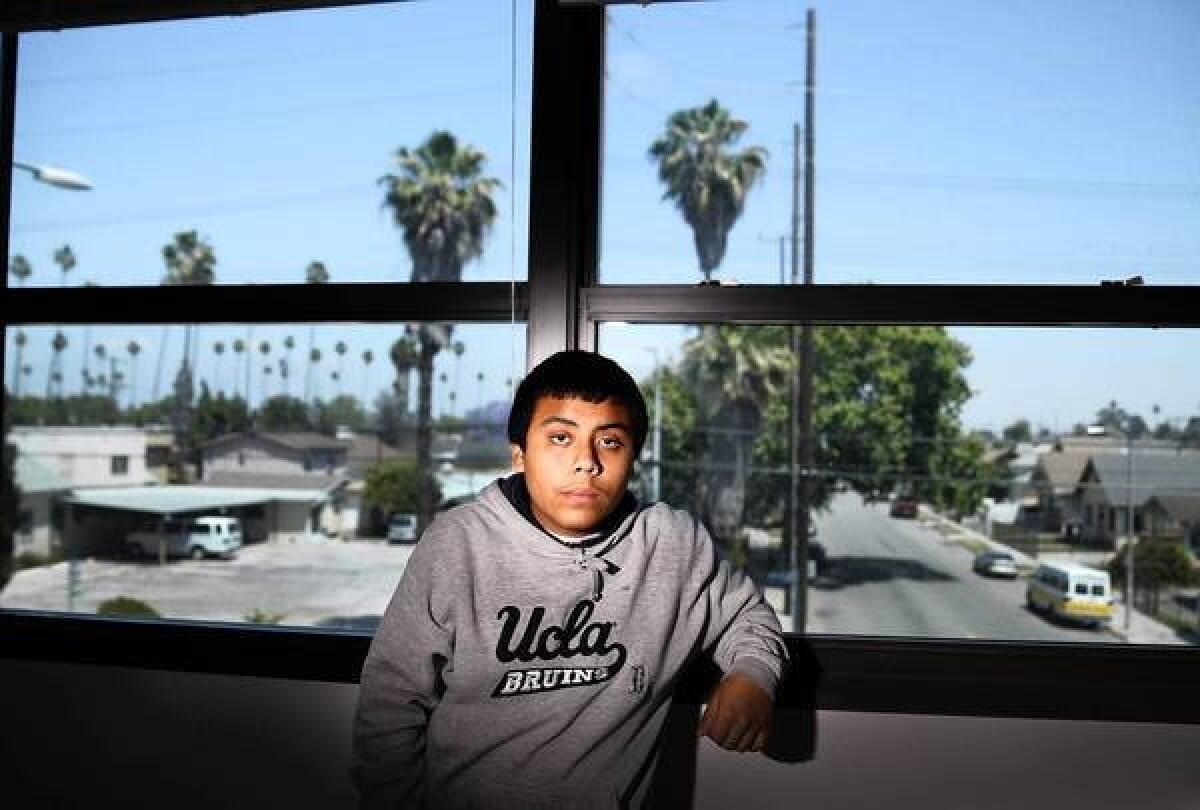California student suspensions, expulsions have dropped, data show

- Share via
California schools have sharply reduced the number of students they are suspending or expelling amid growing pressure to keep students in school with alternative disciplinary measures, state officials announced Wednesday.
The number of suspensions dropped by 14.1% to 609,471 last year from 709,596 over the previous year. Expulsions declined by 12.3% to 8,562 from 9,758 over the same period, said state Supt. of Public Instruction Tom Torlakson.
Suspensions declined among nearly all ethnic groups, including reductions of about 10% for African Americans, Latinos and whites. But, continuing a pattern that has prompted national concern, African Americans were still disproportionately suspended, with a rate of 16.2% last year although they make up 6.3% of the statewide student population.
The data represent the state’s first year-to-year comparison of disciplinary actions taken against students including their racial and ethnic backgrounds.
“Although fewer students are being removed from the classroom in every demographic across the state, the rates remain troubling and show that educators and school communities have a long road ahead,” Torlakson said in a statement.
Students were most often removed from school for “defiance,” a controversial category of misbehavior that civil rights advocates say has resulted in suspensions for failing to bring a pencil or wear a school uniform. Overall, however, suspensions for defiance dropped by 23.8% last year, the largest decline of any category.
L.A. Unified reduced suspensions by 37.5% and expulsions by 15.1% last year. A federal review of the district’s disciplinary practices resulted in a 2011 voluntary agreement that requires the nation’s second-largest school district to track and report discipline data and eliminate “inequitable and disproportionate” practices.
Among other things, the Los Angeles Board of Education last year approved the state’s first ban on suspensions for defiance and directed district officials to develop alternative disciplinary measures shown to be more effective.
Those measures include programs to resolve conflicts by bringing all parties together and to offer incentives for good behavior. Several studies have shown that such approaches reduce misbehavior, while research in Texas and elsewhere found that suspensions did not lead to better behavior but were linked to poor academic achievement and runs-in with law enforcement.
Twitter:@TeresaWatanabe
More to Read
Sign up for Essential California
The most important California stories and recommendations in your inbox every morning.
You may occasionally receive promotional content from the Los Angeles Times.











